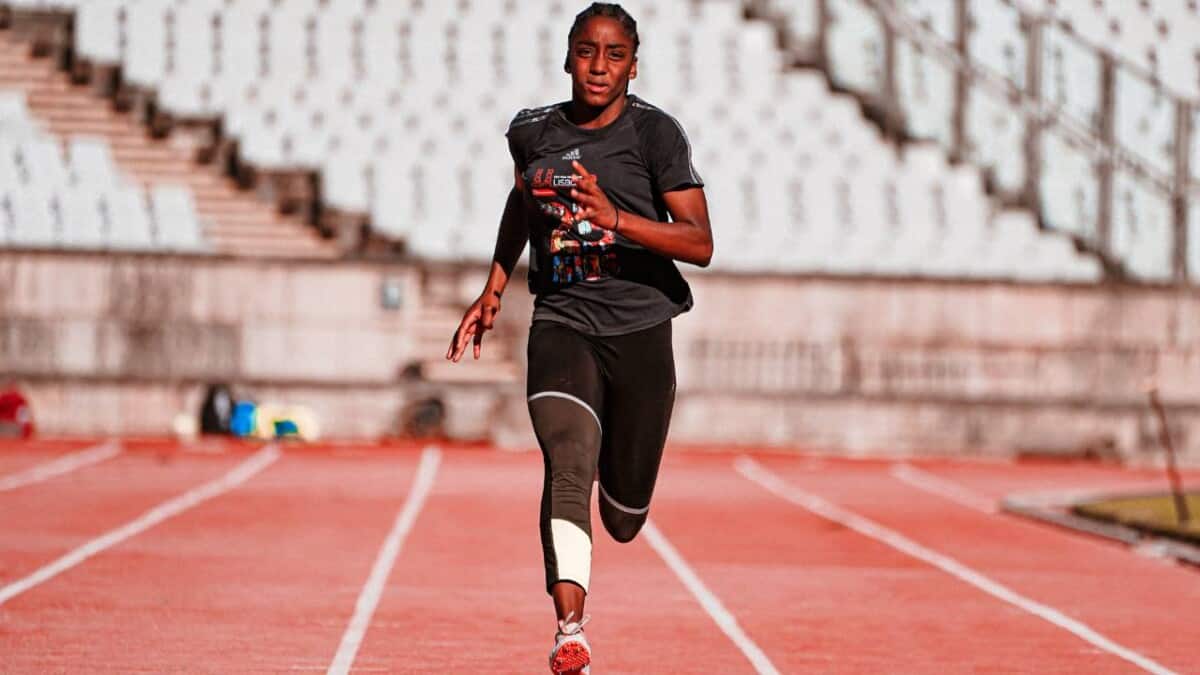Running is a popular form of exercise and a great way to improve cardiovascular health. One of the most popular middle-distance running events is the 1500-meter race. This event is a true test of speed and endurance, requiring runners to maintain a fast pace for several laps around the track.
Table of Contents
Average Time to Run 1500m by Age and Ability
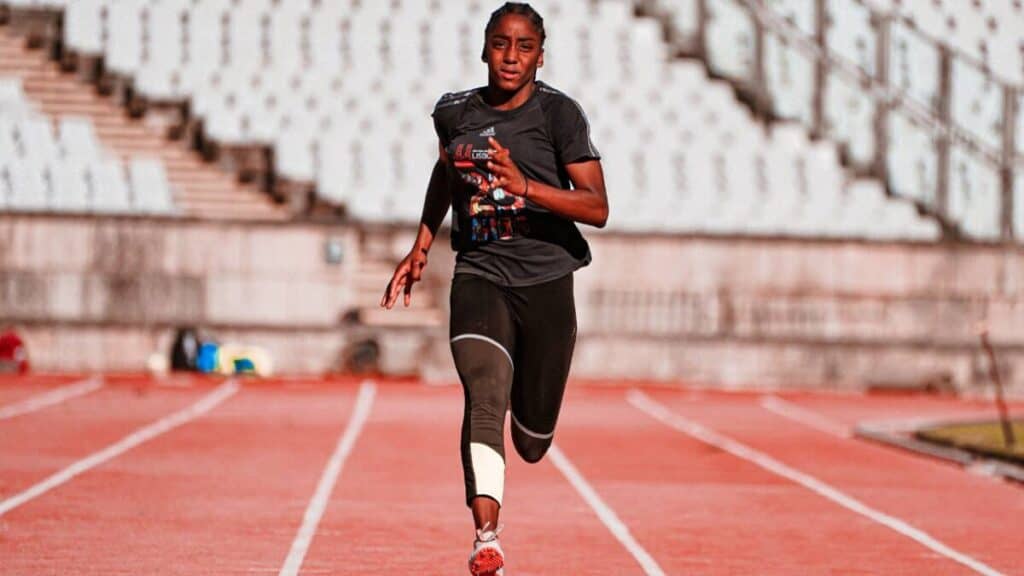
The average 1500m run time is around 03:56 and 05:01 for males and 04:35 and 06:02 for females. For elite runners its around 03:35.
By comparing their own times to the average times for their age and ability level, runners can set realistic goals and work towards achieving them. Whether you are a seasoned athlete or just starting out, understanding the average time to run 1500m can be a valuable piece of information when it comes to improving your running performance.
These tables can be a helpful tool for runners looking to improve their performance or simply gain a better understanding of their own abilities.
| Age | Average Time to Run 1500m Males |
| 15 -20 | 04:00.0 |
| 20-25 | 03:56.0 |
| 25-30 | 03:58.0 |
| 30-35 | 04:01.0 |
| 35-40 | 04:04.0 |
| 40-45 | 04:14.0 |
| 45-50 | 04:23.0 |
| 50-55 | 04:34.0 |
| 55-60 | 04:46.0 |
| 60-65 | 05:01.0 |
| Age | Average Time to Run 1500m Female |
| 15 -20 | 04:42.0 |
| 20-25 | 04:35.0 |
| 25-30 | 04:38.0 |
| 30-35 | 04:40.0 |
| 35-40 | 04:43.0 |
| 40-45 | 04:50.0 |
| 45-50 | 05:02.0 |
| 50-55 | 05:21.0 |
| 55-60 | 05:39.0 |
| 60-65 | 06:02.0 |
Check out my complete data list of all track running distances and the most popular running distances by age, gender and ability, average running times the complete guide.
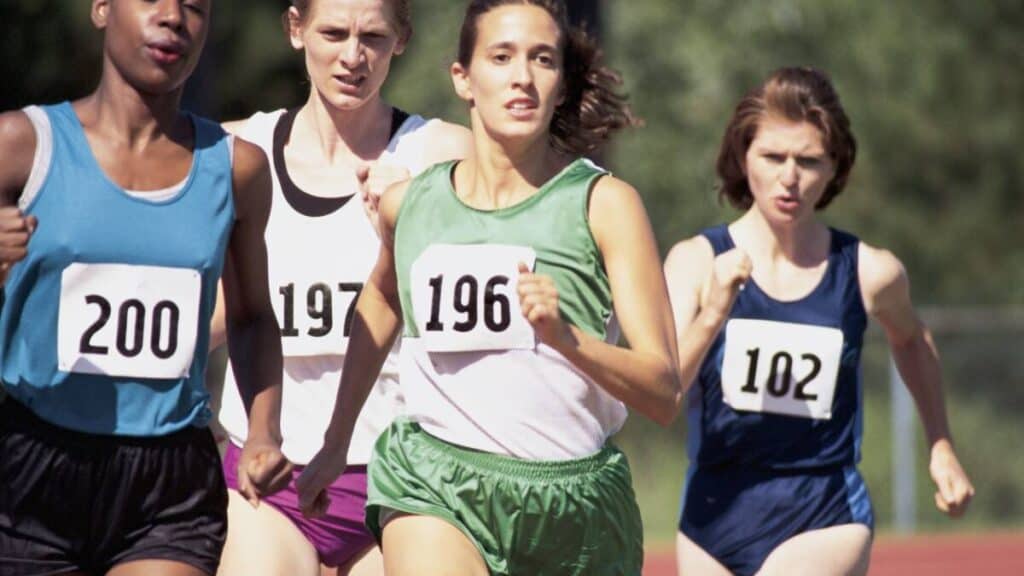
Age Group 18-25
According to Sage-Answers, the average time for a male in the age group of 18-25 to run 1500m is 4 minutes and 20 seconds, while the average time for a female is 5 minutes and 15 seconds. However, it is important to remember that these are just averages and individual performances can vary based on factors such as fitness level, training, and genetics.
Age Group 26-35
For the age group of 26-35, the average time for a male to run 1500m is around 4 minutes and 30 seconds, while for females, it is around 5 minutes and 30 seconds. These times are based on data from Meteor.run, which provides age and gender grade tables for runners.
Age Group 36-45
As per the same source, the average time for a male in the age group of 36-45 to run 1500m is around 4 minutes and 45 seconds, while for females, it is around 6 minutes. It is important to note that these times are based on data from runners who participate in races and may not be representative of the general population.
Age Group 46-55
For the age group of 46-55, the average time for a male to run 1500m is around 5 minutes and 15 seconds, while for females, it is around 7 minutes. These times are based on the same source as the previous section and may not be accurate for everyone in this age group.
Age Group 56+
According to the same source, the average time for a male in the age group of 56 and above to run 1500m is around 6 minutes, while for females, it is around 8 minutes. However, it is important to remember that these are just averages and individual performances can vary based on factors such as fitness level, training, and genetics.
Beginner Level
For beginners, the average time to run 1500m can vary widely depending on factors such as age, fitness level, and training. However, a decent time for a beginner would be around 6 minutes and 30 seconds.
Intermediate Level
For runners at an intermediate level, the average time to run 1500m can range from 4 minutes and 30 seconds to 5 minutes and 30 seconds for males and 5 minutes and 30 seconds to 6 minutes and 30 seconds for females. These times are based on data from Healthline.
Advanced Level
For runners at an advanced level, the average time to run 1500m can range from 4 minutes to 4 minutes and 30 seconds for males and 5 minutes to 5 minutes and 30 seconds for females. These times are based on data from Yourwiseinformation.
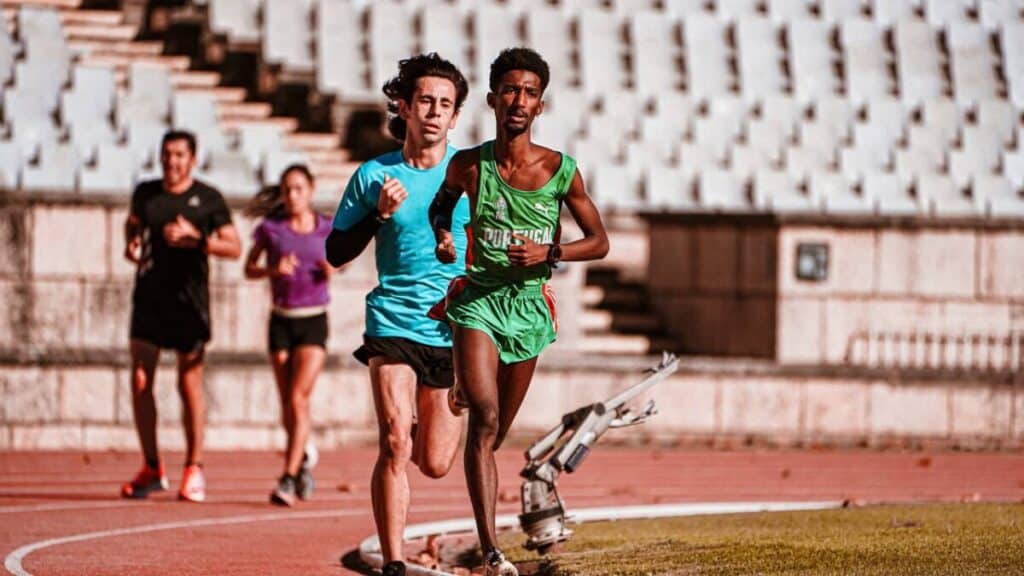
What is the 1500m run?
The 1500m run is a middle-distance race that is popular in track and field competitions around the world. It is approximately equivalent to running just under one mile, or four laps around a standard 400m track.
The race requires a combination of speed, endurance, and strategy, as runners must maintain a fast pace for the entire distance while also conserving energy for a final push at the end.
The 1500m run has a rich history, with the metric distance being contested by men at every Olympic Games since 1896. In the USA and Great Britain, the mile (1609m) was a common middle-distance race, but the metric 1500m has since become the standard.
The race order is typically decided on time, with major championships featuring a heat, semi-final, and final.
When it comes to running the 1500m, there are a variety of factors that can impact an individual’s performance. Age, gender, and level of competition can all play a role in determining a runner’s average time. Additionally, factors such as training, nutrition, and overall health can also impact performance.
| Age Group | Ability Level | Average Time |
|---|---|---|
| Under 18 | Beginner | 6:30-8:00 |
| Intermediate | 5:30-6:30 | |
| Advanced | 4:30-5:30 | |
| 18-30 | Beginner | 5:30-7:00 |
| Intermediate | 4:30-5:30 | |
| Advanced | 3:45-4:30 | |
| Over 30 | Beginner | 6:00-8:00 |
| Intermediate | 5:00-6:00 | |
| Advanced | 4:00-5:00 |
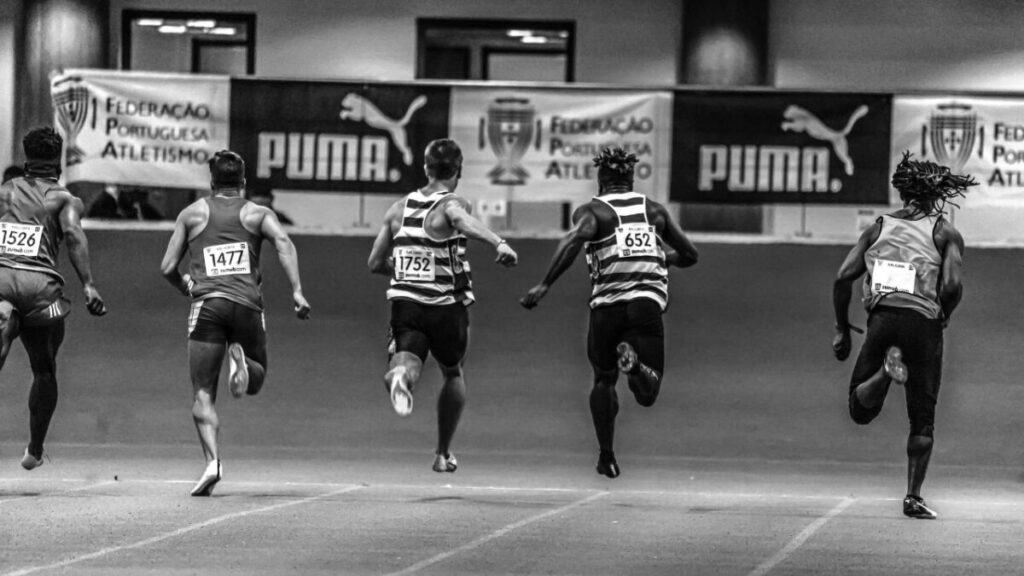
Factors that Affect the Average Time to Run 1500m
Age
Age is a significant factor that affects the average time to run 1500m. As people age, their bodies undergo various changes, including a decrease in muscle mass and a decline in cardiovascular fitness. These changes can negatively impact a person’s speed and endurance, resulting in slower running times.
For instance, according to a study by the National Strength and Conditioning Association, men aged 20-29 years have an average 1500m time of 4:37, while men aged 60-69 years have an average time of 6:30.
Gender
Gender is another factor that affects the average time to run 1500m. Generally, men tend to run faster than women due to differences in physical characteristics such as muscle mass, lung capacity, and hemoglobin levels.
According to the same study by the National Strength and Conditioning Association, women aged 20-29 years have an average time of 5:29, while men in the same age group have an average time of 4:37.
Fitness Level
A person’s fitness level is a crucial factor that affects their running time. Individuals who engage in regular physical activity and have a higher level of cardiovascular fitness tend to run faster than those who live a sedentary lifestyle.
Additionally, people who participate in sports that require endurance training, such as long-distance running, tend to have faster 1500m times.
Training Program
The type of training program a person follows can also affect their 1500m time. A well-designed training program that includes a mix of speed work, endurance training, and strength training can help improve a person’s running time.
Additionally, incorporating interval training and hill workouts can help increase a person’s speed and endurance, leading to faster 1500m times.
Weather Conditions
The weather conditions during a race can also affect a person’s 1500m time. Running in hot and humid conditions can cause a person to tire more quickly and slow down, while running in cold and windy conditions can make it harder to breathe and run efficiently. Therefore, running in optimal weather conditions can help improve a person’s running time.
Overall, various factors can affect a person’s average time to run 1500m. By understanding these factors and taking steps to improve their running performance, individuals can work towards achieving faster 1500m times.
Other Track Running Times You Might Find Helpful;
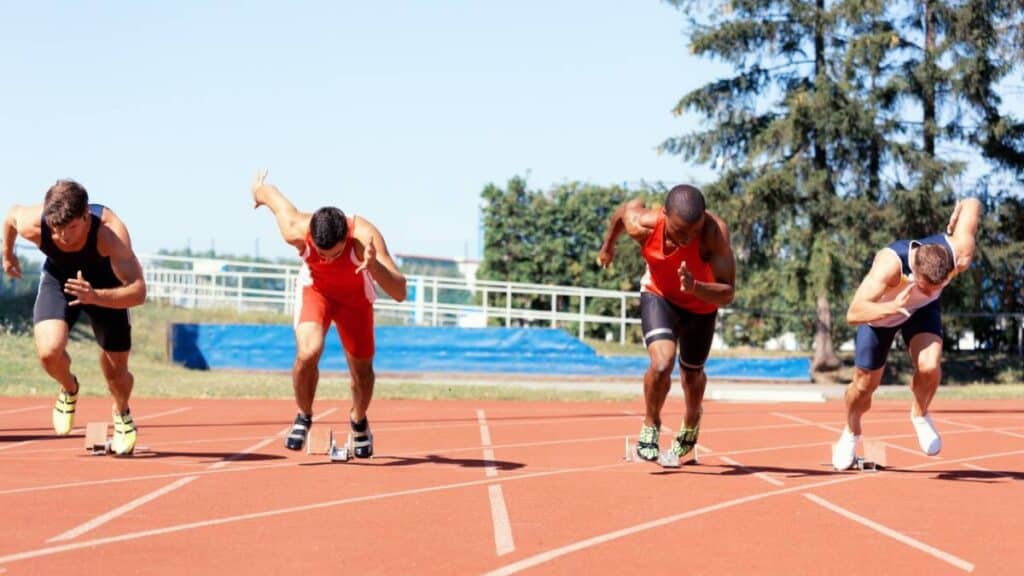
Average Time to Run 1500m Summary
Based on the data collected, it is clear that the average time to run 1500m varies greatly depending on age and ability. For example, an average time for a high school student is around 6:00, while an outstanding time for someone of the same age is around 5:00.
Overall, the data shows that running a 1500m race requires a combination of speed, endurance, and mental toughness. Whether you are a seasoned athlete or just starting out, setting and working towards achievable goals can help you improve your performance and achieve success.
